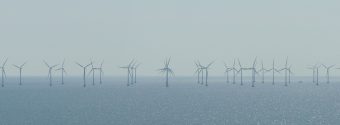
UK investment in renewables looks set to plummet by up to 95 per cent over the next three years, the think tank Green Alliance has warned in a new analysis of the latest government data on the UK’s infrastructure investment pipeline.
More than £1bn of renewables investment planned between now and 2020 has been wiped from the government’s books over the last six months, figures published by the government last month show, as cutbacks to the UK’s clean energy subsidy schemes begin to bite.
Green Alliance is today warning this trend could accelerate between now and 2020 – threatening the UK’s ability to meet its ambitious climate targets – unless urgent action is taken to boost the number of clean energy projects in the pipeline.
Ministers are aware of growing concerns about a low carbon investment hiatus and the resulting risk of the UK missing its emissions reduction and renewable energy targets for the 2020s. The government has promised to come forward with a new plan in the coming months for ensuring the UK’s legally-binding medium-term emissions targets are met.
But Green Alliance argued the onus was on the government to come forward with a plan that stops clean energy investment collapsing over the next few years.
“The challenge for government will be to deliver the policy required in the forthcoming Emissions Reduction Plan to keep low carbon investment up for the tail end of this parliament and into the 2020s,” the think tank said in its analysis.
Green Alliance is calling on the government to set out its funding strategy for low-carbon development beyond 2020 to boost investor confidence and unlock new investment in wind, solar and other green energy technologies. It also claims more support for renewable heat and transport technology will drive fresh investment in areas that are crucial to the government’s decarbonisation goals.
However, there is some good news for green businesses in the latest analysis. In the six months since the government released its last infrastructure update, the share of investment over the next three years for high carbon infrastructure – such as roads, fossil fuel power stations and airports – has fallen from 33 per cent to 30 per cent. It marks the first time since 2012 that planned high-carbon investment has stopped growing.
Green Alliance suggests in its briefing that the apparent slowdown in high-carbon projects is due to a decline in private sector investment in high-carbon assets, rather than a strategic change in the priorities of the government, but nonetheless it labels the shift “good news” for the environment. With the right policy environment, infrastructure investors can be encouraged to directly switch investments from high-carbon to low-carbon projects, it notes.
Source: businessgreen.com



